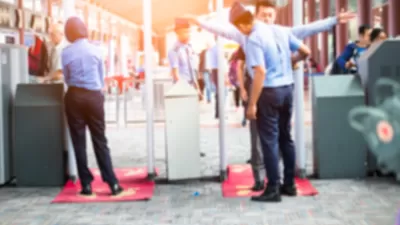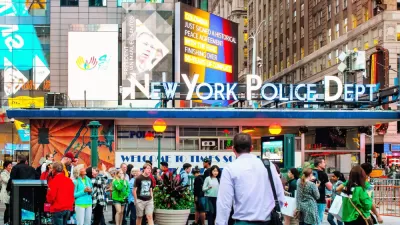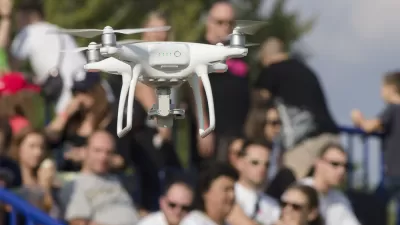Miami may be the first American city to have its police force adopt Unmanned Aerial Vehicles (UAVs) to aid police in fighting crime, a development civil liberties groups are finding disconcerting.
"Miami police could soon be the first in the United States to use cutting-edge, spy-in-the-sky technology to beef up their fight against crime.
A small pilotless drone manufactured by Honeywell International, capable of hovering and "staring" using electro-optic or infrared sensors, is expected to make its debut soon in the skies over the Florida Everglades.
If use of the drone wins Federal Aviation Administration approval after tests, the Miami-Dade Police Department will start flying the 14-pound (6.3 kg) drone over urban areas with an eye toward full-fledged employment in crime fighting.
Miami-Dade police are not alone, however. Taking their lead from the U.S. military, which has used drones in Iraq and Afghanistan for years, law enforcement agencies across the country have voiced a growing interest in using drones for domestic crime-fighting missions. Known in the aerospace industry as UAVs, for unmanned aerial vehicles, drones have been under development for decades in the United States.
Citing numerous safety concerns, the FAA -- the government agency responsible for regulating civil aviation -- has been slow in developing procedures for the use of UAVs by police departments.
Some privacy advocates, however, say rules and ordinances need to be drafted to protect civil liberties during surveillance operations.
'There's been controversies all around about putting up surveillance cameras in public areas,' said Howard Simon, Florida director of the American Civil Liberties Union. 'Technological developments can be used by law enforcement in a way that enhances public safety,' he said. 'But every enhanced technology also contains a threat of further erosion of privacy.'"
FULL STORY: Spy-in-the-sky drone sets sights on Miami

Alabama: Trump Terminates Settlements for Black Communities Harmed By Raw Sewage
Trump deemed the landmark civil rights agreement “illegal DEI and environmental justice policy.”

Planetizen Federal Action Tracker
A weekly monitor of how Trump’s orders and actions are impacting planners and planning in America.

Why Should We Subsidize Public Transportation?
Many public transit agencies face financial stress due to rising costs, declining fare revenue, and declining subsidies. Transit advocates must provide a strong business case for increasing public transit funding.

Understanding Road Diets
An explainer from Momentum highlights the advantages of reducing vehicle lanes in favor of more bike, transit, and pedestrian infrastructure.

New California Law Regulates Warehouse Pollution
A new law tightens building and emissions regulations for large distribution warehouses to mitigate air pollution and traffic in surrounding communities.

Phoenix Announces Opening Date for Light Rail Extension
The South Central extension will connect South Phoenix to downtown and other major hubs starting on June 7.
Urban Design for Planners 1: Software Tools
This six-course series explores essential urban design concepts using open source software and equips planners with the tools they need to participate fully in the urban design process.
Planning for Universal Design
Learn the tools for implementing Universal Design in planning regulations.
Caltrans
Smith Gee Studio
Institute for Housing and Urban Development Studies (IHS)
City of Grandview
Harvard GSD Executive Education
Toledo-Lucas County Plan Commissions
Salt Lake City
NYU Wagner Graduate School of Public Service





























